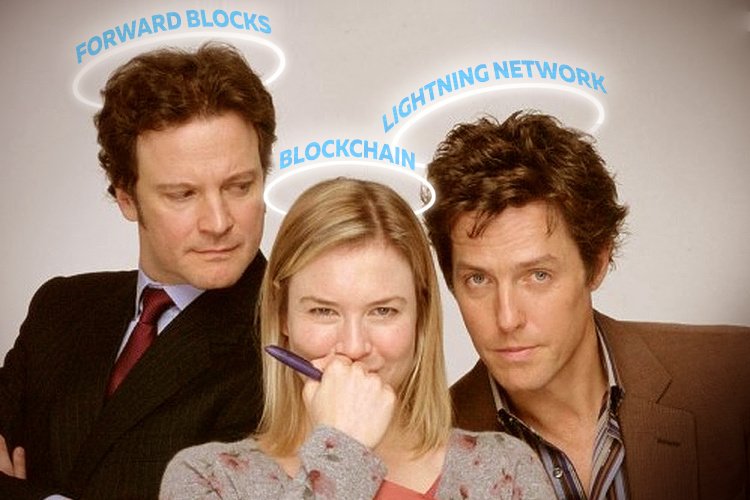Revolution Or Sabotage: Scaling Through A Bag of Bitcoins' Blockchain

Scalability - this is an endlessly painful theme and constant headache for the blockchain enthusiasts and everyone blockchain or crypto-curious. If we forget about the technical detail - the thing is that blockchain at this point of time does not scale well and that puts considerable boundaries on it's usage. Sure there are solutions. “Lightning” network and similar systems work, but potentially they take the "crypto" part out of the "cryptocurrency". Sharding works fine but in most cases it requires a hard fork that causes numerous technical issues and overall difficult for the development team. Various ICOs offer a solution but in most cases it ends up being a fun game of the “Spot the scammer” among thousands and thousands of CEOs offering to speed up to the Visa and Mastercard transactions.
However, on the 5 of October blockchain has got itself an alternative that shook up the community well enough to make it buzz. Mark Friedenbach that is also known as maaku, revealed a new way to solve the scalability issue, during the “Scaling Bitcoin” conference that was held in Japan. So the kicker is that this method works fully on the chain, which means that the lion's share of the controversy raised by the “lightning” network is out of the window.
His method is called “Forward Blocks”. He is offering using a proof-of-work algorithm in a soft-fork compatible way, either simultaneously with dropping the aggregate limits or as a later re-application of the concept in nested forward blocks. According to his words, this way the speed of transactions will be raised by 3584 which is enough to make the difference, but nothing unrealistic like in projects that offer to ramp up transaction speeds by 5000 times. This will allow each person in the current bitcoin network have 11 hassle-free transactions a day.
It’s obvious that because of the nature of the news, this has sparked active discussion on all social platforms. A good percentage of the users called this approach unwise and a masked up timewrap vulnerability exploitation. Timewrap attack is an exploit based on an old bug where difficulty of calculation for the next block is off because of the time discrepancies between them. A hacker repeatedly tries to generate the last block of each retarget window, and while doing so uses an altered timestamp going into the future. This time difference between the first and last window makes retarget windows sizeable, using a fabricated timestamp of two hours into the future to make the time difference from the first block in the retarget window high and by thus lowering the difficulty by 0.5%.
Because of the created difference, fake timestamp is not used as a first block in the next retarget window and those “extra hours” are not compensated during calculation of the difficulty for the next PoW task. Like this, a potential hacker can ramp the difficulty down and get himself a bunch of “fast coins”.
According to the community opinions, maakus idea blows off anti-inflation guarantees that bitcoin has and uses an exploit as a basis for the creation of a software for the upcoming soft fork. Forward Blocks critics say that using of the exploit as a key feat for something is wrong, as it makes it more of a hack, than a legit upgrade. Mark’s most neutral opponents say that his upgrade is cool and probably required extensive work, but it’s a workaround and not a properly engineered solution. Harsh critics tell that his method and words are full of double standards and lack a systematic approach.
Mark сame back at the criticism claiming that this modification will solve a problem and patch up the timewarp vulnerability in the network, resolving the issue for good, making criminal usage of this vulnerability impossible. Moreover, hard fork at the current point of bitcoin history is unwise and potentially dangerous for the bitcoin ecosystem.
At the moment Friedenbach plans to test his upgrade on this cryptocurrency Freicoin, that he launched a few years ago. It has a community, and its reaction will be a deciding factor in the chances of further implementation in the bitcoin network.
Everyone has different opinions about this issue, but it does not change the fact: transactions speed and scalability issues are currently the critical problems of blockchain. And lack of answers is already putting some of the well-established projects in jeopardy.